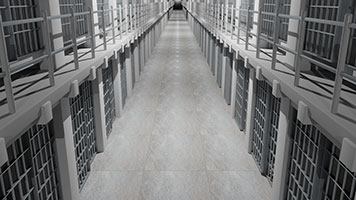
While prisons exist to help rehabilitate people who have committed a crime or hold those awaiting trial, prisoners still have basic rights to a clean and hygienic habitation. Regular cleaning of prison areas is an important task, especially when you consider how many people live and work within prison environments. The UK’s current prison population is approximately 83,000, with around 35,000 employees keeping these facilities running as smoothly as possible.
While frequent cleaning forms part of the day-to-day management of these buildings, specialist deep cleaning is also required to prevent the spread of disease and ensure the area is fully disinfected for both inmates and staff.
Deep cleaning
The build-up of general grime and obvious dirt may be removed as part of a regular cleaning regime, but beneath the surface, unseen deposits and microscopic bacteria and pathogens can accumulate.
This is where employing industrial cleaning experts can complement daily cleaning routines, as they will have access to resources such as clinical grade disinfectants, high level cleaning equipment and specialist fogging as part of their armoury. ULV Fogging, for example, works by generating a mist of disinfectant, which settles on top of, underneath and on the sides of objects, furniture and hard-to-reach areas - ideal for ensuring every surface is covered.
